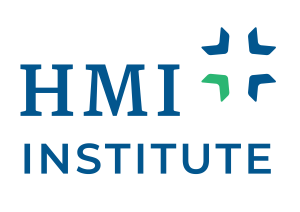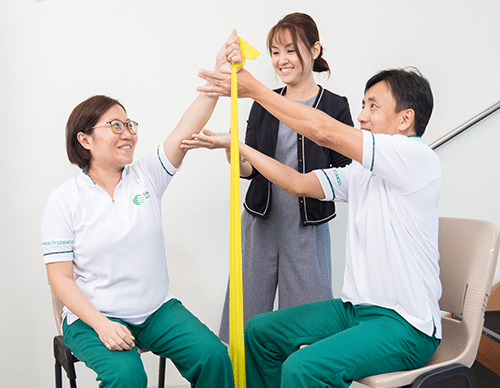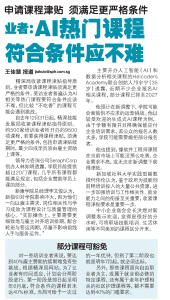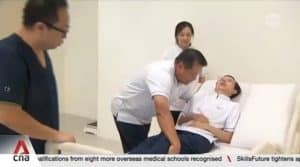Dr Gan See Khem
Executive Chairman & Group Managing Director, Health Management International Pte Ltd
Ms Chin Wei Jia
Group General Manager, Health Management International Pte Ltd
Mr Tee Soo Kong
General Manager, HMI Institute of Health Sciences
Graduands
Distinguished guests, Ladies and gentlemen
Good afternoon.
- I am delighted to join you today at the HMI Institute of Health Sciences’ 2013 Annual Graduation Ceremony. My warmest congratulations go out to all the 255 graduands of the Singapore Workforce Skills Qualifications, or WSQ, for Healthcare Support in the areas of Nursing Care, Therapy Services, Operating Theatre Support, and Administrative Support.
- Your graduation is a special occasion. It marks the culmination of many months of hard work for each of you. I am sure that your parents, family members and lecturers, who have supported you throughout your course of study, share the pride and joy of your success today.
Growing Demand for Healthcare Workers
- Today marks your start to a new career in healthcare, which is one of the most rapidly growing sectors in Singapore. With one of the fastest aging populations in Asia, Singapore faces growing demand for quality healthcare. To cope with this challenge, the Ministry of Health (MOH) has put in place the Healthcare 2020 Masterplan. Under Healthcare 2020, 3,700 more acute and community hospital beds will be added. The number of nursing home beds will also increase by about 70% to 15,600 by 2020. At the same time, we are developing more care options for the elderly to be cared for in the home and within the community, in line with their preference to age in place. The expansion in healthcare service requires a large pool of well trained and qualified healthcare professionals and support staff.
- In meeting this growing demand, I am pleased that HMI has worked closely with healthcare institutions in Singapore in both the acute and long term care settings, to develop the curriculum for the students. The WSQ course trainers are also qualified healthcare professionals who help equip trainees with the required knowledge and skills, together with the right mindsets and attitude, to be competent and effective healthcare staff. This alignment with the healthcare industry is critical in ensuring that what you learn remains up-to-date and relevant to the current healthcare landscape.
Enhancing Productivity of the Healthcare Workforce
- Even as we grow the healthcare workforce, we are constantly looking at ways to innovate and improve their productivity. This means empowering our healthcare workers to do more, not simply by working harder or longer, but by working smarter – with better skills, increased knowledge, and enabling technologies. With higher productivity per worker, we will be able to provide better and more cost effective care for patients, enhance salaries for healthcare workers and most importantly, continue to provide quality and affordable healthcare to Singaporeans as a high performing healthcare system.
- The Ministry of Health (MOH), together with the NTUC’s Healthcare Cluster of Unions and the six Public Healthcare Clusters, have formed the healthcare cluster tripartite workgroup with the objective of raising productivity in the public healthcare sector and enhancing the employability, job value and retention of the rank-and-file healthcare workers. At the same time, MOH and the Agency for Integrated Care (AIC) are supporting service providers in the intermediate and long term care (ILTC) sector to embark on productivity projects. Various innovative projects, such as job redesign, workflow improvement and use of assistive technology, are being implemented by healthcare providers.
- For instance, the Institute of Mental Health has purchased new wet vacuums which enable their Health Attendants to save 1000 hours per cleaning cycle in the hospital. This frees up time for Health Attendants to also take on other direct patient care roles such as assisting patient behaviour assessments and rehabilitation activities.
- The deployment of assistive devices like Calypso Chairs and Sara Stedy Transfer Aids for transferring patients in some of our acute and long term care institutions has helped to reduce the time healthcare staff spends on transferring activities. Besides improving efficiency, the usage of these devices also reduces the risk of back injuries for nursing and support care staff.
- These are just two examples of how our healthcare institutions are striving to raise the productivity of their healthcare staff so as to meet future challenges.
Continuous Training and Upgrading of Healthcare Workers
- For each of you as healthcare workers, it is important that you continue to upgrade yourself throughout your careers to meet the needs of the future. Patients are facing increasingly complex conditions, and expectations of the quality of care are also rising. Thus, it is critical for healthcare staff to continually seek to deepen their skills and knowledge in order to support new care models and to achieve higher care standards.
- Various continual training and upgrading opportunities are made available for healthcare staff working in both public and ILTC healthcare institutions. For example, the AIC Learning Institute, formed in 2011, provides skills training for healthcare staff in the ILTC sector in areas such as infection control, patient safety and quality improvement.
- Healthcare Assistants who have a deep interest in nursing can pursue further studies to become an Enrolled Nurse, through the WDA Place and Train Nitec in Nursing Course. A good example is Mr Mohd Hairul Bin Mohd, a HMI graduate in his late twenties. He was employed by Tan Tock Seng Hospital in January 2011 and has been with the Hospital since. Mr Mohd Hairul is a caring and hardworking staff who is able to build good rapport with his patients and has received many compliments. He has always shown interest to learn new things and has been passionate in his work. Due to his good performance and aptitude, he was sponsored to do the Nitec in Nursing course in April last year and is now on his way to becoming an assistant nurse.
- I hope that you can be inspired by Mr Mohd Hairul and others like him, to cultivate a passion for excellence as you join the ranks of Singapore’s healthcare workforce.
- With that, I congratulate you and wish you all the very best as you embark on a fulfilling and meaningful career in healthcare, because everyday at work, you are touching lives and making a difference.
Thank you.





